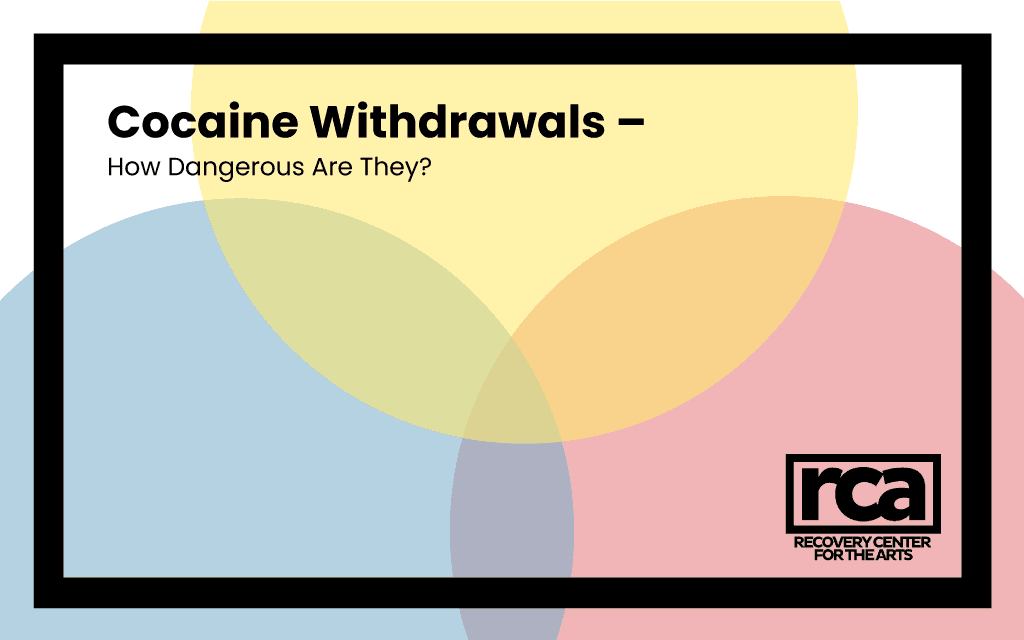
“The only person you are destined to become is the person you decide to be.”
– Ralph Waldo Emerson
Do circumstances cause guaranteed outcomes? If every single person experienced the same event, would they all walk away thinking or feeling the same thing?
Of course not.
Our lives are not black and white. Everything is not always a yes or a no. Yet, so many people take this mentality when thinking about substance use disorders. There are so many common misconceptions about how they happen, why they happen, and what symptoms mean.
So many people are quick to judge or be full-out dismissive. They may blame the individual for the circumstances they’re in, or pinpoint a singular decision they made and say if they’d just done that one thing differently then this wouldn’t have happened.
In 2021 alone, over 100,000 Arizona residents aged 12 and older tried cocaine at least once. Surely their lives aren’t exact mirrors of each other, nor are their symptoms and outcomes.
Cocaine withdrawals are one such thing that are misunderstood and yet judged at the same time. Our team at Recovery Center for the Arts has seen how this lack of education and awareness around cocaine use disorders can lead to a lack of treatment and support. That’s why today we want to talk about cocaine withdrawals, what they mean, why they happen, and what you can do if you or a loved one experiences them.
What Even Are Withdrawals and What Causes Them?
You may have heard of the term withdrawal before, maybe you’ve even experienced it, but hearing of or even experiencing something doesn’t always mean you know exactly what it is.
Withdrawals stem from physical dependence. Our bodies are very adaptive, always adjusting to work as efficiently as possible in order to meet our needs. When you start regularly introducing a medication or substance into your body that interacts with how it functions, your body adapts to this. It will lessen the amount of effort it puts into the task or tasks that the substance is altering.
When your body becomes accustomed to this, that’s when physical dependence begins. While physical dependence isn’t a guaranteed indicator of a substance use disorder, in the case of illicit substances like cocaine, it usually is.
Once your body becomes physically dependent on a substance, ceasing the use of that substance triggers a reaction. It takes time, usually no more than 24 hours, for your body to realize the substance isn’t present anymore. Your body will then begin to readjust and slowly take back over the process the substance was interfering with. This can lead to a myriad of side effects that vary depending on the substance and how long you were taking it. This time frame and the symptoms that occur during it are what is known as withdrawal.

How Much Cocaine Do You Need to Take to Experience Withdrawals?
Now that you’ve learned how physical dependence and withdrawal occur, you may be wondering if there’s a certain amount of a substance, in this case cocaine, that guarantees you experience withdrawal.
Long story short – there isn’t. Let’s explain why.
There are many factors that come into play when physical dependence is involved. The biggest ones are dosage, consistency, personal health, metabolism, and other forms of substance use involved. For some medications, these factors can be taken into account giving doctors a decent idea of how to manage dosages and taper the patient off a medication, when needed.
When dealing with unregulated substances like cocaine, however, another factor comes into play. Cocaine isn’t always made up of exactly the same things. Two batches, even from the same source, could still contain different variances and purities. It’s not uncommon for household products or even other drugs to be laced with cocaine. This adds another layer of complexity for what level of tolerance the body builds around the substance.
How to Spot the Common Signs of Cocaine Withdrawal
Despite not being as innately life-threatening as some forms of withdrawal, cocaine withdrawal can still be unpleasant. Being able to spot the signs of it can not only help you know what’s going on, but give you the ability to react properly and help manage your side effects.
The most common signs of cocaine withdrawal include:
- Increased depression
- Changes in sleep patterns
- Increased fatigue
- Changes in appetite
- Nausea
- Aches or general discomfort
- Slowed movement or reaction time
- Cravings for cocaine
Many of these side effects will revolve around an overall “slower” feeling in the body. This is because cocaine is a stimulant. Your body had been accustomed to the “energy” or general increase in feelings and motivation provided by the cocaine, so it no longer being there causes an opposite reaction.
What Is the Average Timeline of Cocaine Withdrawal?
Cocaine withdrawals tend to start about 24 hours after the last dose. This can vary depending on the dosage, if other substances were involved, and the individual’s history with cocaine use.
For most people, the symptoms of cocaine withdrawal will last for 3 to 7 days. For some, however, they might experience PWS or protracted withdrawal syndrome. This condition can occur for a large variety of substance use disorders and is defined by substance-specific withdrawal symptoms that last longer than the average withdrawal time frame.
Protracted withdrawal can be treated and will eventually go away with proper management and care.
Is Cocaine Withdrawal Dangerous?
While the innate side effects from cocaine withdrawal aren’t as dangerous at face value as withdrawal from alcohol or opioids, that doesn’t mean cocaine withdrawals should be overlooked.
The biggest risk that comes from cocaine withdrawals is overdose. That’s right.
You see, if someone starts going through withdrawals – their tolerance levels can lower for how much cocaine their body can handle. This becomes even more true the longer their withdrawals go on. If they then cave and return to cocaine use at the same level they previously were at, they’re at an increased risk of overdosing.
This is why it can be important to be able to spot withdrawal when it’s occurring. If you’re unaware of what you’re experiencing and how it can impact you, you’re going to be more likely to make a decision that could hurt you without your knowledge.
Can You Navigate Cocaine Withdrawal From Home?
There are many aspects of cocaine withdrawal that don’t innately need medical attention. If you can have support while at home and make sure that you’re maintaining good hydration, eating, and sleeping habits – you can maintain much of withdrawals side effects.
However, withdrawal isn’t the only hurdle that you need to cross in order to reach recovery. In fact, it’s often just the first step.
You shouldn’t have to flounder at home, looking up WikiHow articles and YouTube videos about how to tackle your recovery journey. There are many passionate and caring professionals who are happy to help you and support you along the way. Not only can they provide insight and expert guidance, but they can help take a lot of the weight off your shoulders and answer any and all questions you may have. All you have to do is reach out.

Addressing Cocaine Withdrawal in Arizona Through Substance Use Treatment
If you want to set yourself up for long-term success in your recovery journey, seeking out cocaine addiction treatment is an important step to take. While it may seem daunting trying to find a place that you feel will suit your needs – there are many options available, you just need to know what to look for.
A good facility should be one that’s dedicated to you and your unique circumstances. No two people who step into treatment are the exact same, so no treatment program should have a one-size-fits-all approach to recovery.
Another factor to keep in mind is your passions and interests. Many recovery programs offer additional activities as apart of their healing program. This is because not only are hobbies great for healing your soul, they’re also great for learning how to fill the time that your substance use once previously filled up.
The creative process is one that can greatly aid in the healing process, and at Recovery Center for the Arts we recognize that. That’s why we incorporate multiple forms of creative expression into our treatment program. From full recording studios to photography, painting, and more you’ll find a way to connect with your inner child once more as you walk towards your healing goals. Just give us a call at (480) 386-1593 and we’ll help you get started today.
Recovery Center for the Arts – Finding recovery through creativity.

